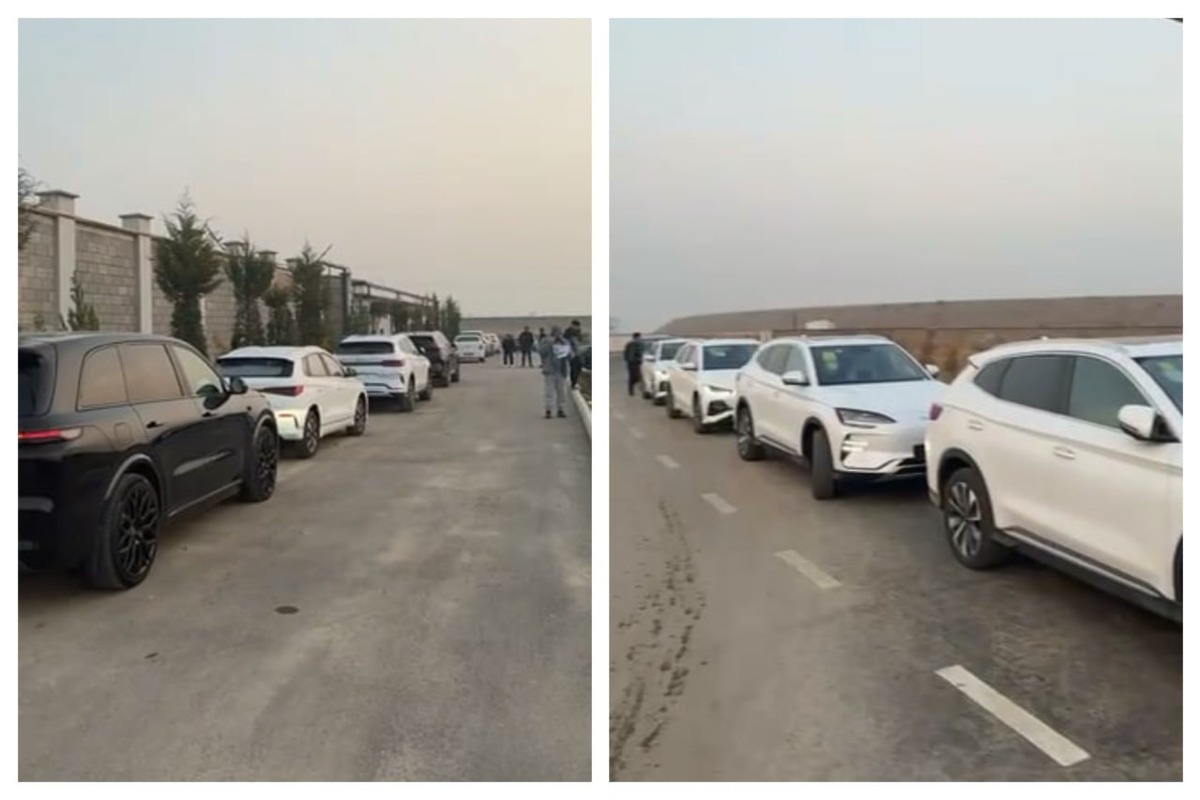Messages about queues at a vehicle testing ground in the Pskent district of Tashkent region have spread on social networks.
Since November 1, the Agency for Technical Regulation has changed the procedure for technical inspection of imported cars (we published a detailed analysis ). Vehicles imported from abroad are tested not on customs territory, but at the automobile testing ground in Pskent.
The new procedure applies to cars imported by individuals and private entrepreneurs who are not official dealers.
The tests are carried out by the agency’s subsidiary, the state institution “Uzbek Center for Scientific Testing and Quality Control” (UzTest).
Last week, the testing site lost the ability to sign up for an electronic queue for vehicle compliance assessment. The problem was later fixed, but car importers can sign up for later dates. For example, at the time of publication, it was possible to take a queue for January 22. Coupons are not issued for Sundays.
There have also been reports online that some laboratories at the testing site have been temporarily closed for unknown reasons, and car owners must wait until February for the process to resume. UzTest denied this information to Gazeta.uz.
UzTest reaction
To organize the orderly testing of category M1 vehicles imported into the republic, an electronic queue was introduced at the Pskent testing ground via the my.gov.uz website.
On the website, vehicle owners can sign up for a queue using their personal identification number (PINFL).
Each vehicle is allocated 20 minutes, which allows testing of 72 vehicles per day, taking into account the capabilities of the laboratory, which operates around the clock, the report says.
However, UzTest found that car owners began to sign up for different dates and times for the same car. For example, the owner of ZEEKR took electronic tickets for January 22 at 00:00 and 18:00, as well as for January 23 at 12:00 for one car. This led to exceeding the established limit of entries and violating the queue.
To correct the situation, the following changes have been made to the electronic records system:
- One PINFL can only receive one entry in the queue until it is used;
- unused entry will be automatically deleted from the system;
- The testing time will be reduced to 15 minutes by increasing the number of laboratory staff (up to 96 cars per day).
Will the measures taken be enough to correct the situation?
According to official data from the Customs Committee, last year a total of 80,235 passenger cars worth $1.9 billion were imported into Uzbekistan, which is about 6,686 cars per month or 219 cars per day, which is three times more than the current capacity of the landfill.
This means that even the increased capacity of UzTest will not be enough for vehicle inspection.
Accusation of monopoly and violation of the law
The autodeklarant Telegram channel indicated that, according to Article 5 of the Law “On Technical Regulation”, within the framework of the basic principles of technical regulation, it is unacceptable for one body to combine powers for state control and confirmation of compliance. Discrimination against entrepreneurs and the creation of conditions for unfair competition in the field of technical regulation are also prohibited.
The body implementing state control in this area is the Agency for Technical Regulation. While the organization UzTest, which evaluates the compliance of cars on an individual basis, is a subordinate institution of the Agency for Technical Regulation.
In response to this, at the request of Gazeta.uz, UzTest reported that if private entrepreneurs have a complex of accredited testing laboratories and certification bodies that have the ability to conduct full tests of vehicles, their activities will not be subject to any restrictions.
When asked by the editorial staff how many cases of non-compliance were identified during technical inspections of foreign cars since November, the Center for Scientific Testing and Quality Control did not provide specific statistics.
“If any defects are found in vehicles imported to Uzbekistan, their import into the country will be prohibited,” the agency stated.
In March, it became known about possible restrictions on unofficial imports of cars from the Chinese BYD. The presidential decree of March 18 on the approval of an investment agreement on the organization of production of electric and hybrid vehicles in Uzbekistan contains a clause stating that the investor, BYD, has asked the government of Uzbekistan “to limit the unregulated import of electric vehicles that do not meet local climatic and road conditions, and do not have an official guarantee.” The president instructed to submit proposals to the government by July 1 aimed at implementing the investor’s requirement “based on current legislation, including competition laws, as well as the principles of the World Trade Organization.”
BYD spokesman Ivan Cao said in a comment that unofficially imported vehicles have not been tested for local climate and environmental conditions, may not meet official export standards, and are not covered by the warranty. And making irreversible changes to the vehicles could “pose hidden risks to long-term safe use.”
At the end of December last year, it was reported that the government was discussing plans to tighten the rules for importing cars, including electric vehicles. In particular, it was planned to ban the import of cars by individuals for commercial purposes from 2024 and to return the procedure for selling new foreign cars only through official dealers. The Agency for Technical Regulation reported that the project was suspended due to criticism, but was back on the agenda in April.







